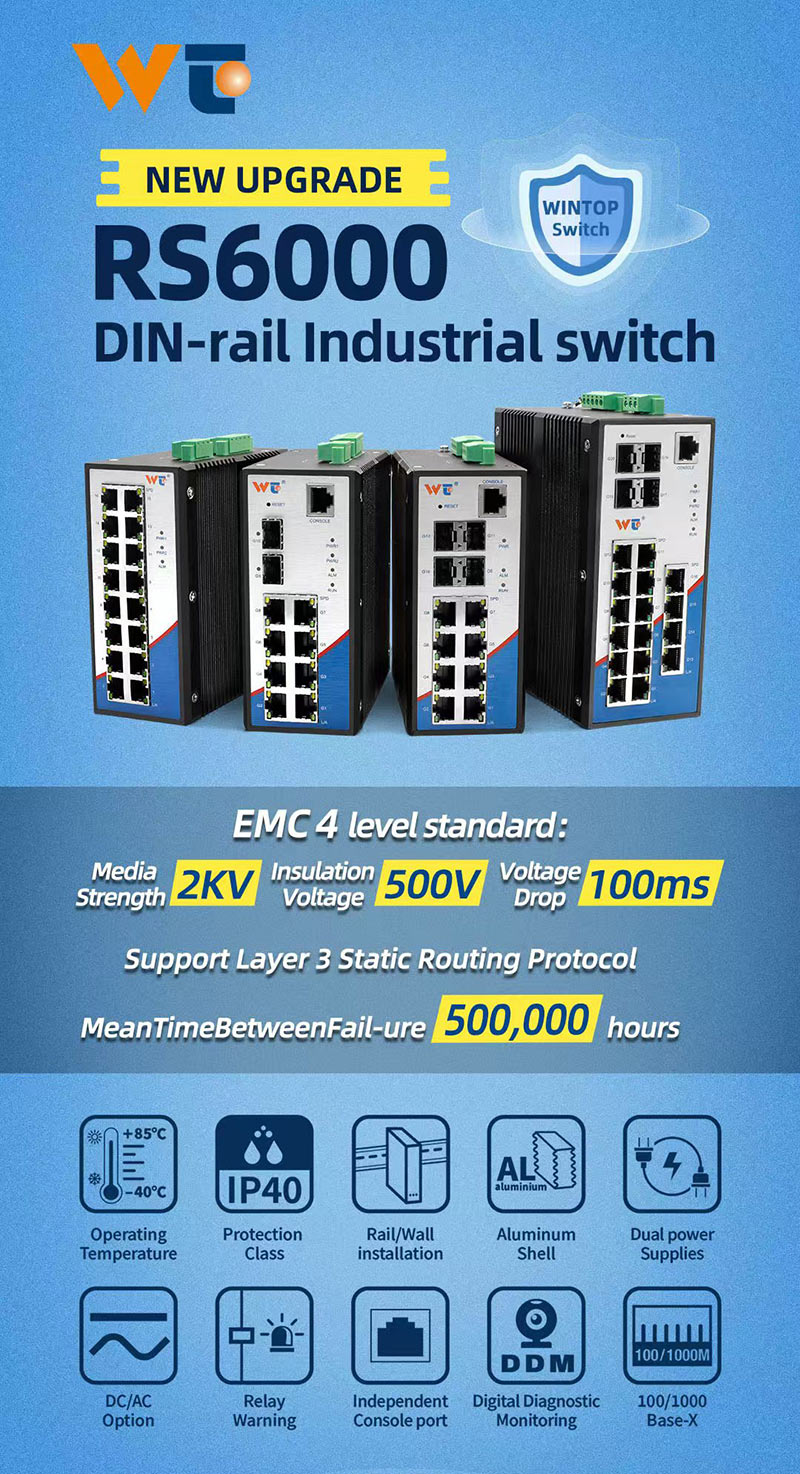Optimizing Transaction Efficiency in AFC Systems with Industrial Switches
Imagine stepping into a bustling metro station during rush hour. Commuters are in a hurry, and the last thing anyone wants is to be held up by a slow, inefficient automated fare collection (AFC) system. The efficiency of these systems is crucial not only for customer satisfaction but also for the operational success of the entire transit network. One key to unlocking this efficiency lies in the use of industrial switches. These powerful devices ensure rapid data processing and reliable transmission, making them indispensable in modern AFC systems.
The Importance of Efficient AFC Systems
Automated fare collection systems are the backbone of modern public transportation networks. They streamline the ticketing process, reduce human error, and enhance the overall passenger experience. However, the efficiency of these systems depends heavily on the seamless and rapid exchange of data between various components, including ticket vending machines, fare gates, and central servers. Any delay or data loss can lead to long queues, frustrated passengers, and lost revenue. Therefore, optimizing transaction efficiency in AFC systems is not just a technical requirement but a critical operational imperative.
How Industrial Switches Enhance Data Processing
Industrial switches are designed to handle the rigorous demands of AFC systems. Unlike regular switches, they offer robust performance, even in harsh environments. These switches facilitate high-speed data transmission, ensuring that every transaction is processed swiftly and accurately. For instance, when a passenger taps their smart card at a fare gate, the data is instantaneously transmitted to the central server and back, verifying the fare and opening the gate within milliseconds. This rapid data exchange is made possible by the advanced processing capabilities of industrial switches.
Reliability: The Cornerstone of Effective AFC Systems
Reliability is paramount in any AFC system. A single point of failure can disrupt the entire network, causing significant delays and inconvenience. Industrial switches are built to provide unparalleled reliability. They feature redundant power supplies, failover mechanisms, and robust construction that ensures continuous operation even in the face of hardware failures or power outages. This reliability translates into fewer downtimes, seamless operations, and satisfied commuters.
Case Study: Enhancing Efficiency in a Major Metro System
Consider the case of a major metropolitan transit system that recently upgraded its AFC infrastructure with industrial switches. Before the upgrade, the system frequently experienced slow transaction times and occasional data losses, particularly during peak hours. By integrating industrial switches, the transit authority was able to significantly enhance data processing speeds and ensure reliable communication across the network. As a result, transaction times were reduced by 30%, and instances of data loss were virtually eliminated. This upgrade not only improved the passenger experience but also boosted the overall efficiency of the transit system.
Scenario: A Day in the Life of an Optimized AFC System
Picture this: It's Monday morning, and the metro station is teeming with commuters. As passengers approach the fare gates, they effortlessly tap their smart cards. The industrial switches quickly process each transaction, allowing the gates to open almost instantaneously. There are no delays, no errors, and no frustrated commuters. The station remains orderly, and everyone reaches their destination on time. This smooth operation is a direct result of the optimized data processing and reliable transmission capabilities provided by industrial switches.
Conclusion: The Future of AFC Systems
As public transportation networks continue to evolve, the demand for efficient and reliable AFC systems will only grow. Industrial switches play a pivotal role in meeting this demand. By enhancing data processing speeds and ensuring reliable communication, these switches help transit authorities deliver a seamless and efficient service to their passengers. The benefits are clear: reduced transaction times, fewer operational disruptions, and improved passenger satisfaction. In the world of public transportation, where every second counts, industrial switches are the unsung heroes that keep the wheels turning smoothly.
In conclusion, optimizing transaction efficiency in AFC systems is a critical task that can significantly impact the overall performance of public transportation networks. Industrial switches offer a powerful solution, providing the speed and reliability needed to ensure smooth operations. As we look to the future, embracing these technologies will be essential for creating a more efficient and enjoyable commuting experience for everyone.
